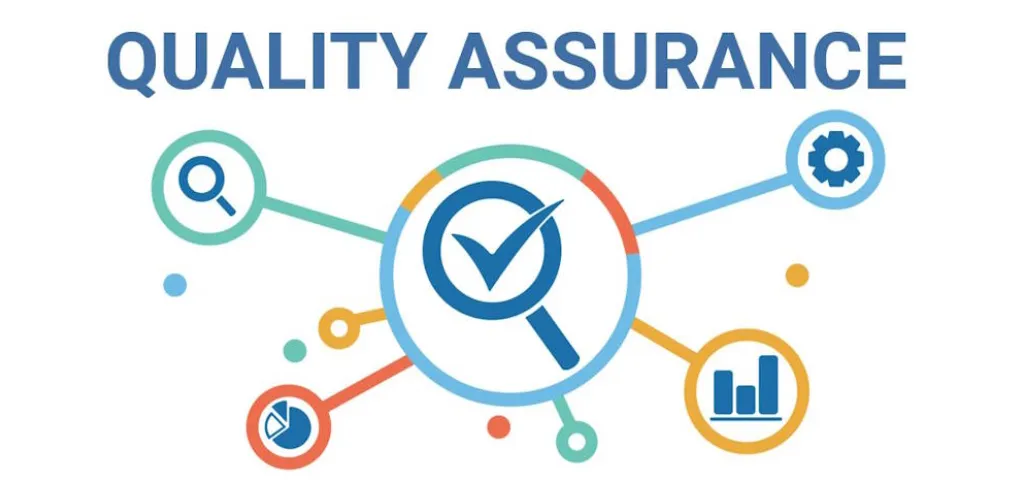
The University of the Peloponnese is committed to providing high-quality education and research. Its Quality Policy expresses the University’s vision and dedication to the continuous improvement of its academic programs, the advancement of research, and the efficiency and effectiveness of its administrative services.
Vision
The University’s vision is guided by the following principles:
- Cultivating a culture of quality across its institutions, processes, and staff.
- Continuous review, revision, and redesign of the Quality Policy and quality assurance processes to respond to the evolving framework of higher education in Greece and internationally.
- Promoting student-centered teaching and assessment.
- Advancing research and innovation.
- Strengthening connections with other higher education institutions.
Commitment to Society and Sustainability
The University of the Peloponnese actively contributes to the educational needs of Greek society and the economy, supporting national development while strictly adhering to the principles of:
- Academic ethics,
- Accountability,
- Sustainable development, and
- Social justice.
To achieve its vision and commitments, the University maintains and implements an Internal Quality Assurance System (IQAS) aligned with the standards of the Hellenic Authority for Higher Education (HAHE). This system ensures that the University’s strategic goals are supported through quality-focused processes, involving leadership, faculty, staff, students, and social partners. Feedback from all stakeholders is a core principle and advantage of the IQAS.
Implementation of Quality Goals
The University applies actions covering all the axes of quality assurance in the European Higher Education Area and aligns them with its strategic planning:
1. Organization of the Quality Assurance System
The University:
- Promotes effective governance by setting specific quality objectives and a long-term strategy.
- Continuously improves the IQAS through administrative reviews.
- Collaborates with supervisory authorities (e.g., Ministry of Education, HAHE).
- Supports achieving high institutional goals through systematic recording, management, and improvement of University structures, processes, human resources, and allocation of necessary resources.
2. Participation of Academic Units and Community Members
Departments, Schools, and administrative units:
- Ensure that academic programs meet student needs, labor market demands, and national development goals.
- Support faculty in student-centered teaching and assessment.
- Provide continuous training to staff and the academic community for effective implementation of quality standards.
- Apply ESG (Environmental, Social, Governance) principles in administration, including transparency.
- Encourage active participation in external evaluation and accreditation.
- Promote engagement in decision-making and internal evaluation at all levels to identify areas for improvement.
3. Promotion of Academic Integrity and Freedom
The University:
- Establishes, implements, and updates a code of ethics for academic and research activities to safeguard academic freedom in teaching, research, and idea exchange.
- Collaborates with competent authorities to ensure compliance.
4. Promotion of Inclusion, Equal Opportunity, and Diversity
The University:
- Fosters dialogue, tolerance, democratic governance, and gender equality.
- Supports vulnerable social groups.
5. Involvement of External Stakeholders
The University:
- Cooperates with supervisory authorities (e.g., Ministry of Education, HAHE).
- Engages with social and regional development organizations through innovation and knowledge-intensive policies.
- Promotes links between education and the labor market.
Research, Innovation, and Internationalization
The University, aspiring to be a hub of excellence, ensures the dissemination of its results by:
- Promoting research, innovation, and entrepreneurship.
- Designing and implementing outreach and internationalization activities, highlighting its contributions to the global academic community and society.
- Upholding transparency, meritocracy, and excellence.
Monitoring and Improvement
The Quality Policy is revised in alignment with the University’s strategic objectives. To achieve its goals:
- Annual SWOT analysis is conducted to maintain strengths, address weaknesses, leverage opportunities, and manage threats.
- Objectives follow the SMART framework (Specific, Measurable, Achievable, Relevant, Time-bound).
- All stakeholders are informed about the policy.
- The University publicizes the Quality Policy through all possible means
This document reflects the University of the Peloponnese’s commitment to continuous improvement, transparency, and academic excellence, ensuring that all members of the academic community participate in achieving these goals.

